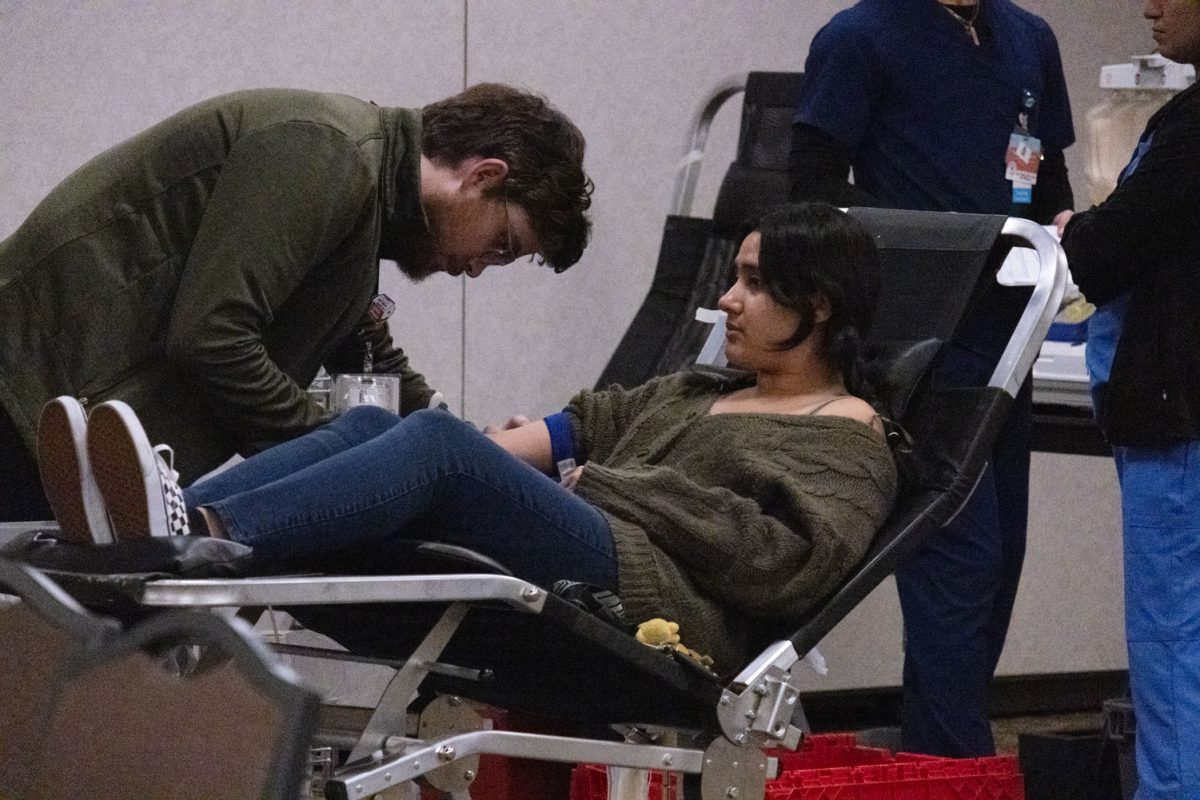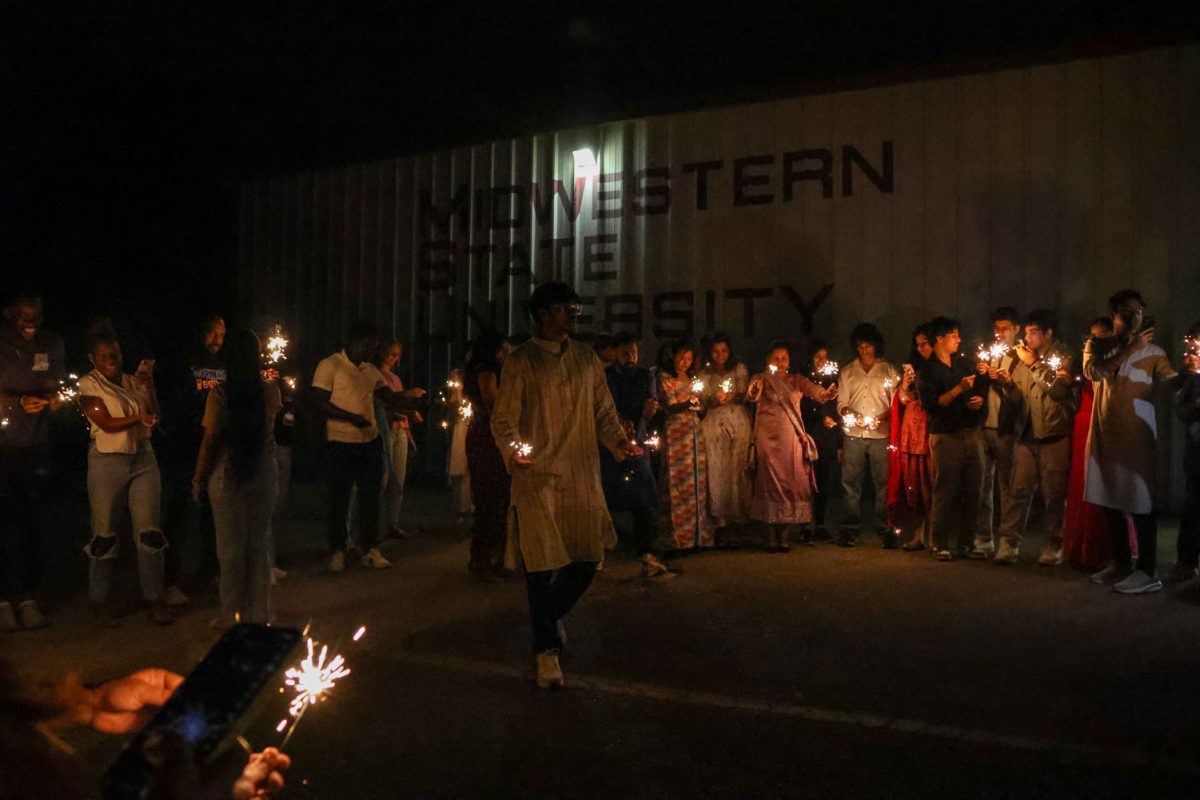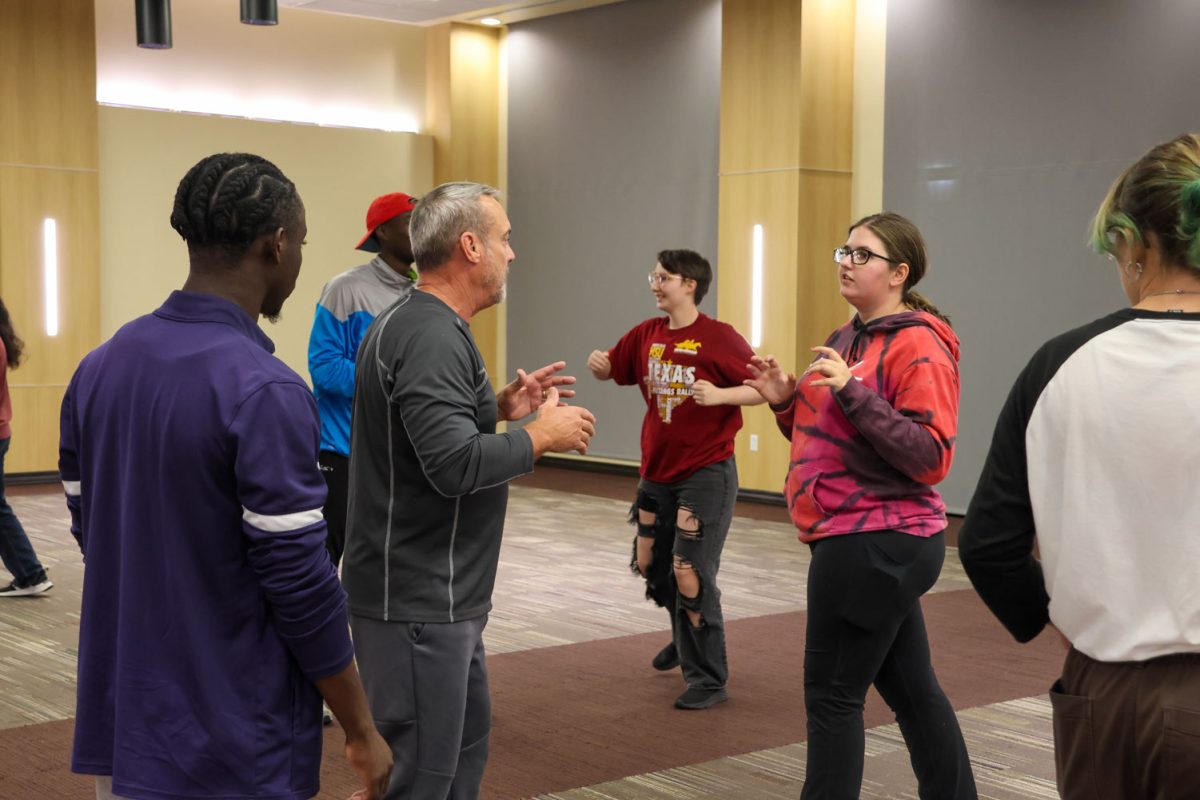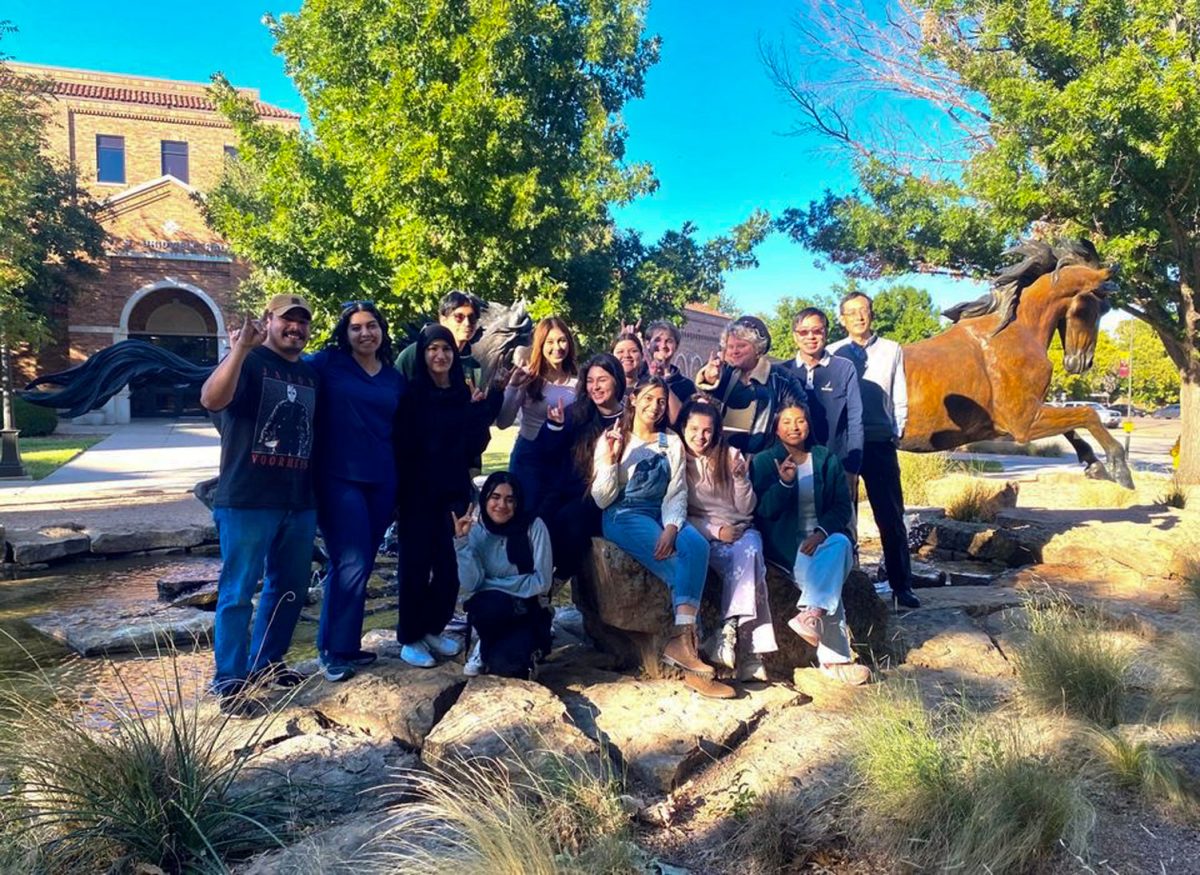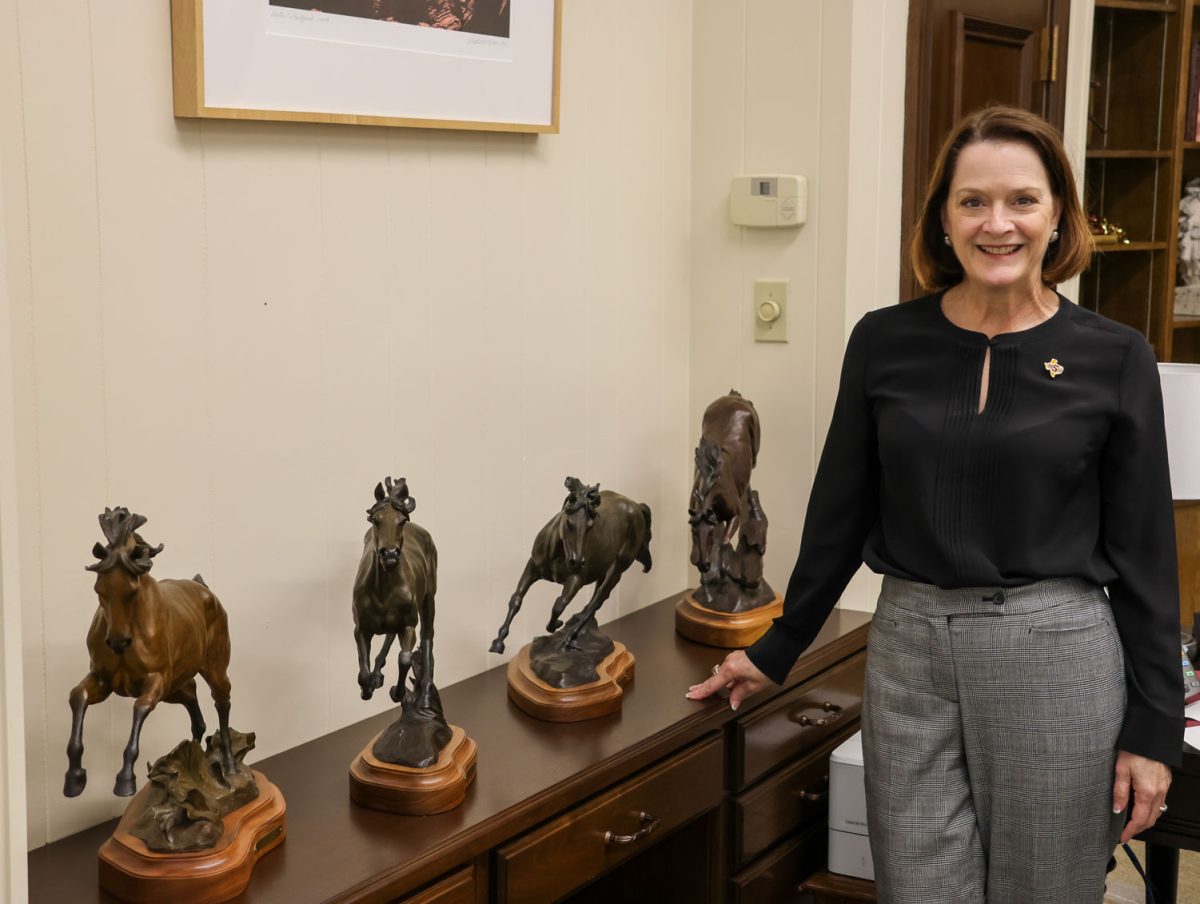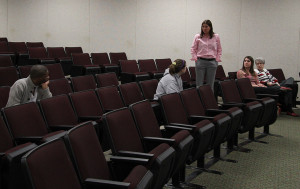
About five students gathered in Clark Student Center Shawnee Theater on March 24 to watch “Miss Representation,” a documentary about the misrepresentation of women in the media.
“I chose this movie because I want to give people a different perspective of how women are viewed by the media,” Shontesa Jones, multicultural services coordinator, said. “This movie allows you see some differences in how men and women are portrayed by the media.”
Shown as part of Women’s History Month, the 2011 Sundance film dives into the scrutiny that women in positions of power face when being illustrated by the media, if the media covers them at all.
“This movie was interesting and opened my eyes to different ways media depict women,” Kelly Calame, junior in mass communication, said. “Plus I’m taking a mass communication history course and getting extra credit.”
The film’s core message resonated with some of the classes students are taking this semester.
“I’m currently taking a women’s studies course and this film was very interesting,” Melissa Grubb, senior in international studies, said.
The Junior League purchased the rights to show the film to explore how mainstream media contributes to the under-representation of women in influential positions by circulating limited and often disparaging portrayals of women.
“We want to educate young women,” Reagan Foster, university counselor and Junior League member, said. “I think this movie is eye-opening and has several ‘A-ha’ moments.”
“Miss Representation” is a documentary directed, written and produced by Jennifer Siebel Newsom. It places a spotlight on the hyper-sexualized objectification of women in television, movies, magazines and advertising. Throughout the film, high school girls share stories of how this misrepresentation of women in the media has affected their outlook on everything from body image to their desired career paths. High-profile actresses such as Academy Award winners Jane Fonda and Geena Davis, activists such as Gloria Steinem, journalists like Katie Couric and former Speaker of the House Nancy Pelosi gave their take on certain obstacles they faced when dealing with the media and what they did to overcome them.
Jones said this film is very important for everyone to watch because it opens this topic up for conversation.
“Seeing this documentary allows people to think about how women are misrepresented while you are at home watching television or at the movies,” Jones said.






